28 Patient Management Software Solutions You Need To Adopt Today
Efficient management of patient data, compliance, and operational workflows is crucial in the ever-evolving healthcare industry. As medical practices strive to provide high-quality patient-centered care, advanced patient management software becomes increasingly important.
This guide provides a comprehensive overview of various patient management tools that are meticulously designed to cater to the unique needs of healthcare providers.
We explore 28 leading patient management software systems, ranging from versatile solutions suitable for ambulatory care practices to enterprise-level platforms catering to large healthcare organizations.
Our detailed exploration closely examines their standout features, advantages, potential drawbacks, and the industries they serve best.
Whether you’re a small practice looking for user-friendly options or a larger organization seeking enterprise-grade solutions, this guide aims to provide insights tailored to your specific requirements.
- 28 best patient management software
- What software system do most hospitals use?
- What is PM software?
- What is patient experience software?
- How to choose the right patient management software for healthcare professionals?
Check out our list of the top 28 best patient management software:
- Epic Systems
- Cerner Millennium
- Allscripts Sunrise EHR
- eClinicalWorks
- NextGen Healthcare
- McKesson Practice Choice
- Athenahealth
- Greenway Health
- Kareo
- Practice Fusion
- AdvancedMD
- Meditech Expanse
- eMDs Solutions Series
- CareCloud
- Drchrono
- Azalea Health
- CareVoyant
- ChartLogic
- WRS Health
- Nextech
- PrognoCIS by Bizmatics
- Meditab’s Intelligent Medical Software (IMS)
- eClinicalWorks V11
- Cerner PowerChart
- Allscripts Professional EHR
- Medisoft
- Greenway Health Prime Suite
- GE Healthcare Centricity Practice Solution
28 best patient management software
Epic Systems
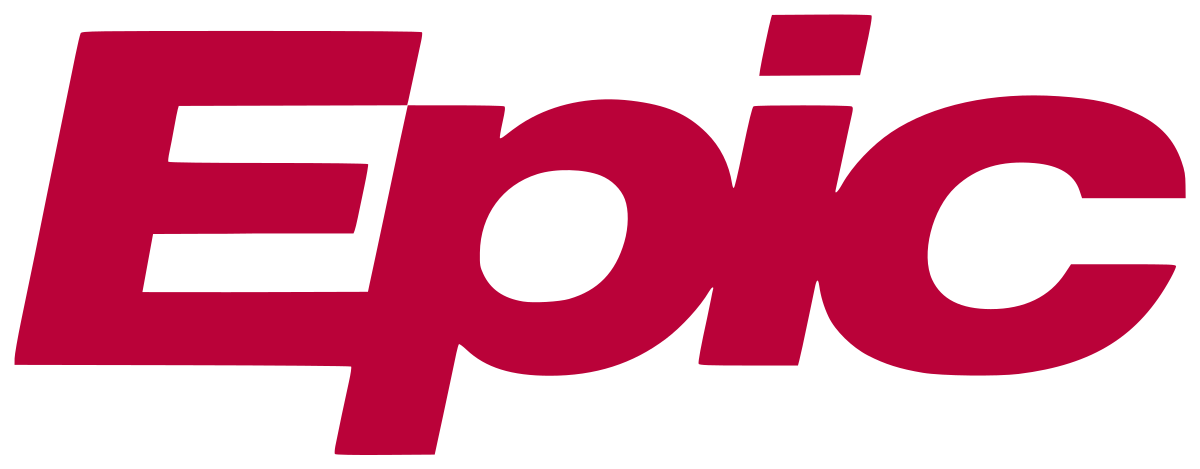
Renowned as a leader in healthcare technology, Epic Systems delivers an expansive Electronic Health Record (EHR) solution, encompassing robust patient management capabilities. This sophisticated software provides an intuitive and user-friendly interface, empowering healthcare providers with efficient tools for comprehensive patient care.
Pros:
- Epic Systems’ EHR offers a comprehensive suite of features, including appointment scheduling, medical billing, and clinical documentation.
- The integration of these modules ensures a seamless and unified platform for managing patient information throughout their healthcare journey.
Cons:
- The implementation process may be intricate, particularly for smaller healthcare organizations.
- Epic Systems is better suited for larger entities with the resources to maximize its extensive functionalities.
Key features:
- Appointment scheduling: Streamline the scheduling process for patient appointments, reducing administrative burdens.
- Medical billing: Manage billing processes seamlessly within the same platform, enhancing financial workflows.
- Clinical documentation: Ensure accurate and efficient recording of patient information, supporting quality care delivery.
- Integrated modules: The integration of various modules enhances operational efficiency and data consistency.
Best for: Epic Systems is an ideal choice for large healthcare organizations seeking an all-encompassing EHR solution with integrated patient management features.
Industry: Tailored for the healthcare industry, including hospitals and expansive medical practices.
Cerner Millennium
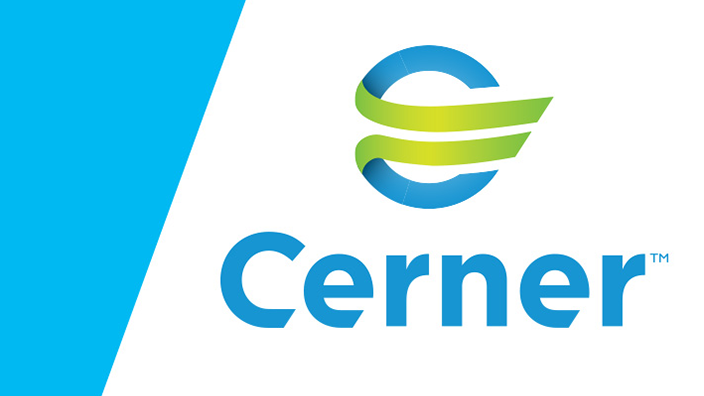
Positioned as a comprehensive solution within the Cerner suite, Cerner Millennium‘s patient management software is meticulously crafted to optimize both clinical and operational workflows. This software acts as a centralized hub for managing patient information, appointments, and medical history, fostering an environment of collaborative and patient-centric care.
Pros:
- Cerner Millennium stands out with its comprehensive patient information management, promoting interoperability for seamless data exchange.
- The software’s emphasis on collaborative care features enhances the overall patient experience.
Cons:
- While offering substantial benefits, Cerner Millennium may necessitate initial customization during setup. This aspect could pose challenges for smaller medical practices without dedicated resources.
Key features:
- Centralized patient information: A central repository for patient data ensures easy access and comprehensive insights into individual health histories.
- Appointment management: Efficient tools for scheduling and managing patient appointments, improving clinic efficiency.
- Interoperability: The software facilitates smooth data exchange, ensuring continuity of care and collaboration among healthcare professionals.
Best for: Cerner Millennium is an optimal choice for healthcare organizations prioritizing collaborative and patient-centered care.
Industry: Best suited for medium to large healthcare facilities aiming to optimize both clinical and operational aspects of patient management.
Allscripts Sunrise EHR
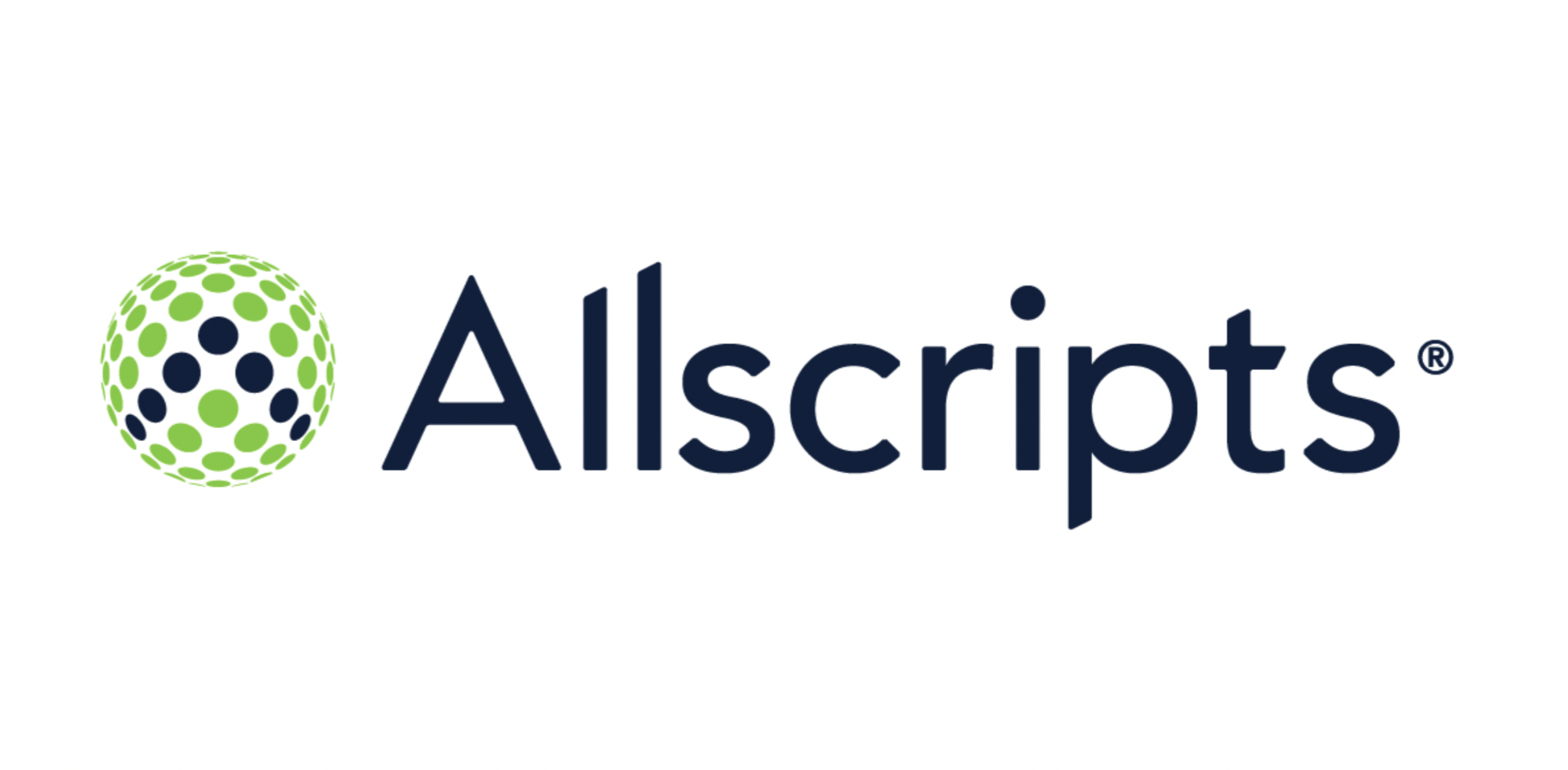
Positioned as a comprehensive Electronic Health Record (EHR) solution, Allscripts Sunrise EHR stands out for its patient management capabilities. With a focus on delivering a holistic view of patient data, this software empowers healthcare providers to make informed decisions and provide personalized care.
Pros:
- Allscripts Sunrise EHR offers a robust set of features, including advanced clinical tools, integrated decision support, and streamlined workflows.
- The software’s commitment to interoperability ensures seamless communication across healthcare systems.
Cons:
- The initial learning curve may be present for users unfamiliar with comprehensive EHR systems.
- Customization options may require careful consideration to align with specific organizational needs.
Key features:
- Advanced clinical tools: Equips healthcare professionals with advanced tools for efficient patient care and treatment planning.
- Integrated decision support: Provides real-time decision support to enhance clinical decision-making and patient outcomes.
- Streamlined workflows: Optimizes operational processes, reducing administrative burdens and enhancing overall efficiency.
- Interoperability: Ensures compatibility with other healthcare systems, promoting data exchange and continuity of care.
Best for: Allscripts Sunrise EHR is well-suited for healthcare organizations seeking a comprehensive EHR solution with advanced clinical capabilities and strong interoperability.
Industry: Tailored for healthcare providers and organizations striving for excellence in patient care.
eClinicalWorks
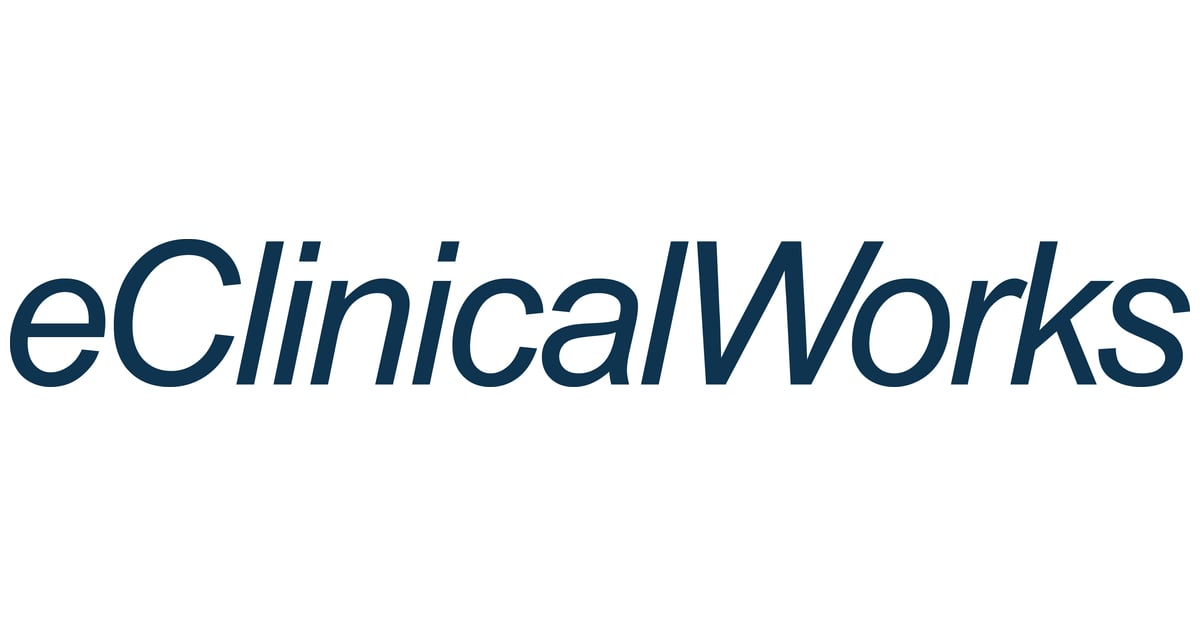
Recognized for its user-friendly interface and comprehensive functionalities, eClinicalWorks offers patient management software designed to enhance both clinical and administrative processes. This solution caters to medical practices of various sizes, providing tools for efficient patient engagement, appointment management, and health record maintenance.
Pros:
- eClinicalWorks excels in user-friendliness, making it accessible for medical professionals across different practice sizes.
- The software’s integrated features cover appointment scheduling, telehealth capabilities, and customizable health records.
Cons:
- While suitable for various practice sizes, extensive customizations may be limited, requiring practices with unique needs to assess compatibility.
Key features:
- Patient engagement: Tools for patient communication and engagement, fostering a collaborative healthcare environment.
- Appointment management: Efficient scheduling and management of patient appointments, reducing wait times and optimizing clinic workflows.
- Telehealth capabilities: Integration of telehealth features, facilitating remote patient consultations and follow-ups.
- Customizable health records: Allows customization of health records to align with specific practice requirements.
Best for: eClinicalWorks caters to medical practices of varying sizes, making it an excellent choice for those seeking user-friendly patient management with integrated telehealth capabilities.
Industry: Well-suited for healthcare providers ranging from small practices to larger medical organizations.
NextGen Healthcare
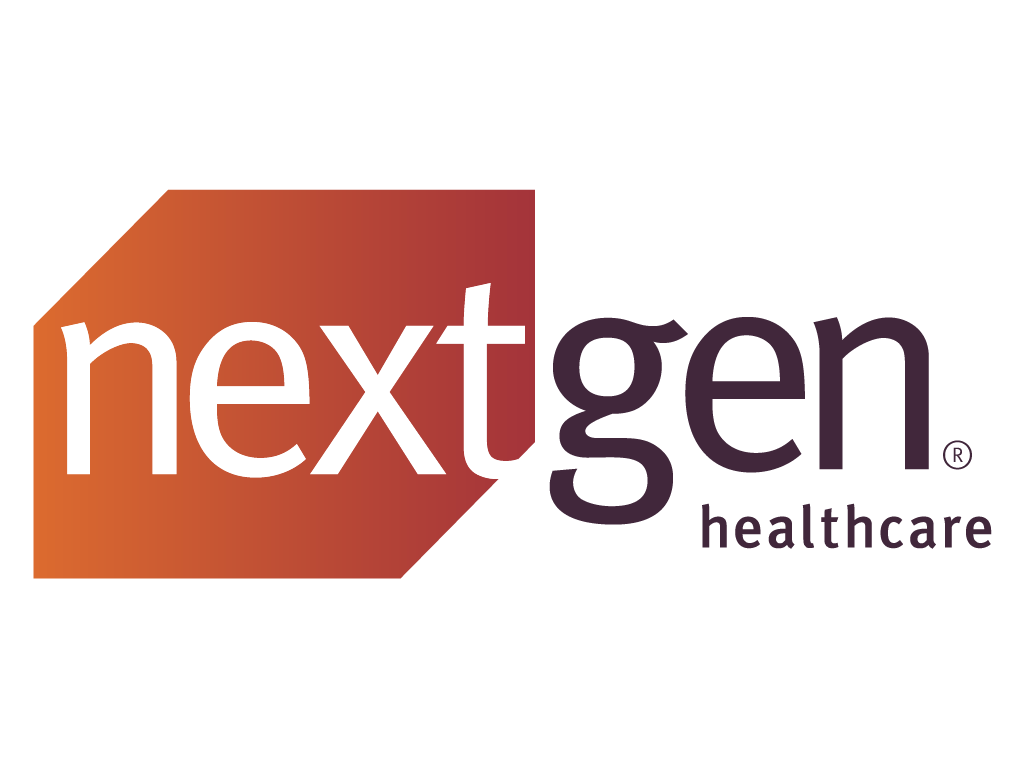
Positioned as a comprehensive healthcare solution, NextGen Healthcare‘s patient management software excels in providing tools for a patient-centric approach. Focused on improving outcomes and operational efficiency, NextGen Healthcare offers a suite of features for seamless patient engagement and data-driven decision-making.
Pros:
- NextGen Healthcare stands out with its commitment to patient engagement, offering features like online appointment scheduling, secure messaging, and health record access.
- The software’s analytics capabilities provide valuable insights for informed decision-making.
Cons:
- Implementation may require careful planning, and organizations need to invest time in staff training to maximize the software’s capabilities.
Key features:
- Patient engagement tools: Enables online appointment scheduling, secure messaging, and patient access to health records, fostering active participation in their healthcare journey.
- Analytics capabilities: Empowers healthcare providers with data-driven insights for informed decision-making, improving overall patient outcomes.
- Interoperability: Ensures seamless data exchange across healthcare systems, supporting collaborative care efforts.
- Operational efficiency: Streamlines administrative processes, reducing manual tasks and optimizing overall clinic efficiency.
Best for: NextGen Healthcare caters to healthcare organizations seeking a patient-focused solution with robust analytics and operational efficiency features.
Industry: Suitable for a wide range of healthcare providers, from small practices to large healthcare systems.
McKesson Practice Choice
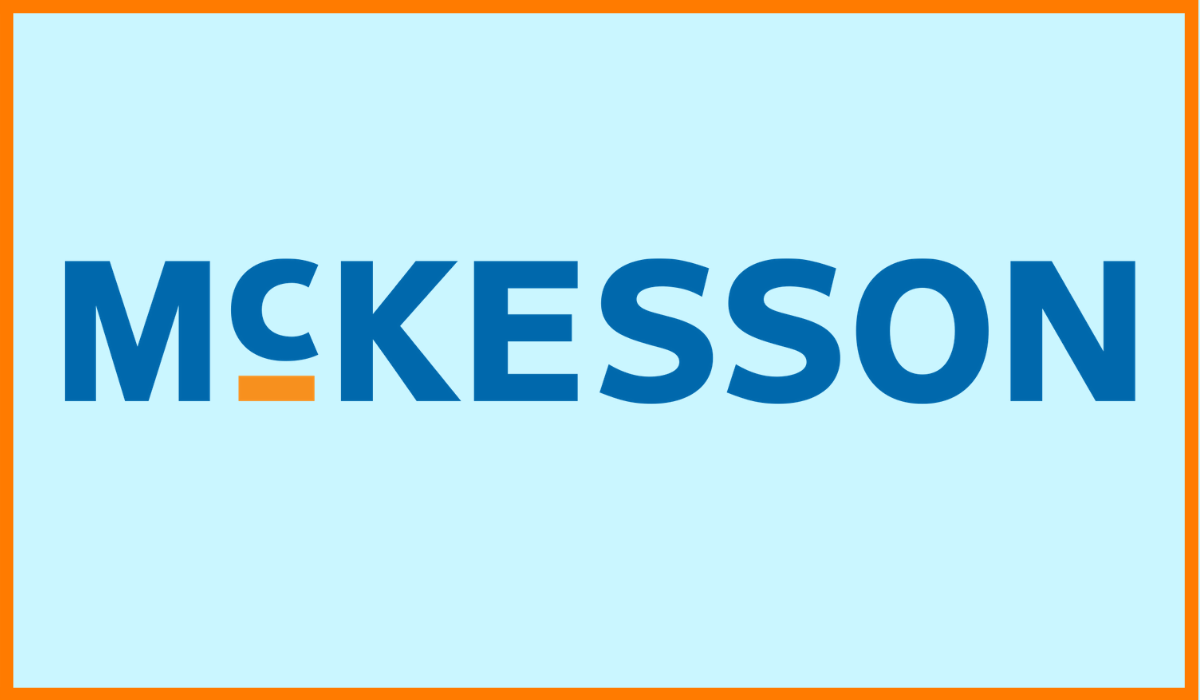
Tailored for smaller medical practices, McKesson Practice Choice offers a user-friendly patient management software solution. With a focus on simplicity and efficiency, this software provides essential tools for appointment scheduling, billing, and health record maintenance, catering to the unique needs of smaller healthcare providers.
Pros:
- McKesson Practice Choice excels in simplicity, making it accessible for smaller medical practices.
- The software covers key features such as appointment scheduling, billing, and basic health record management.
Cons:
- While suitable for smaller practices, organizations with complex needs may find the software’s features limited.
Key features:
- Simplicity: User-friendly interface, making it accessible for smaller medical practices without extensive training requirements.
- Appointment scheduling: Efficient tools for scheduling and managing patient appointments, enhancing overall clinic workflows.
- Billing: Streamlines the billing process, ensuring accurate and timely financial transactions.
- Basic health record management: Provides essential features for maintaining patient health records.
Best for: McKesson Practice Choice is an optimal choice for smaller medical practices seeking a straightforward patient management solution.
Industry: Tailored for smaller healthcare providers and medical practices.
Athenahealth
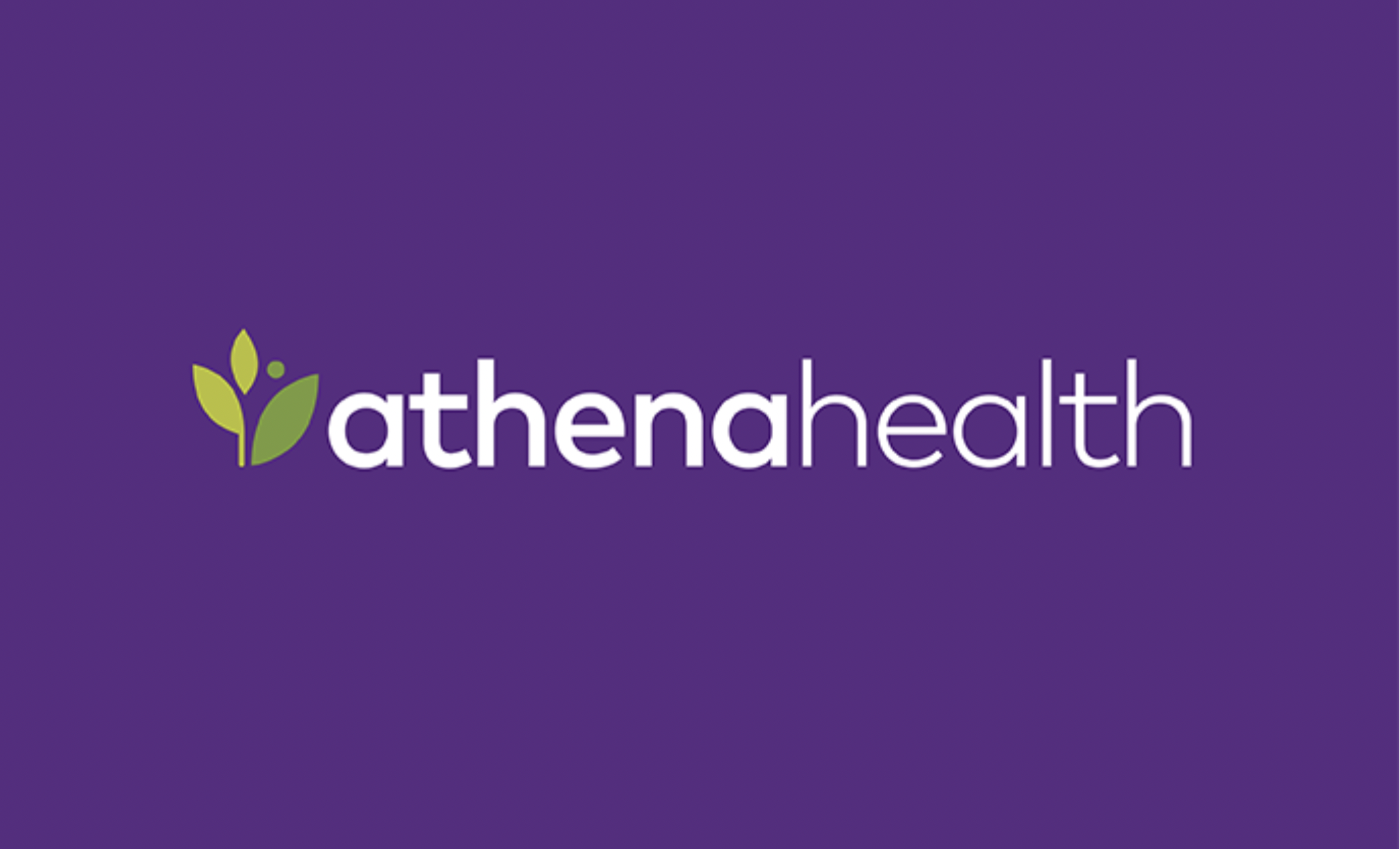
Positioned as a cloud-based solution, Athenahealth‘s patient management software offers a modern and agile approach to healthcare operations. Known for its emphasis on revenue cycle management and interoperability, Athenahealth caters to medical practices aiming for streamlined workflows, improved financial performance, and enhanced patient experiences.
Pros:
- Athenahealth’s cloud-based model ensures accessibility and scalability.
- The software excels in revenue cycle management, interoperability, and patient engagement features.
Cons:
- Implementation may require careful planning, and organizations transitioning from traditional systems may need time for adaptation.
Key features:
- Cloud-based accessibility: Ensures flexibility and accessibility for healthcare providers, supporting modern and remote healthcare practices.
- Revenue cycle management: Comprehensive tools for managing financial processes, from patient billing to claims processing, optimizing revenue streams.
- Interoperability: Facilitates seamless data exchange, promoting collaboration across different healthcare systems and providers.
- Patient engagement features: Offers features for patient communication, appointment reminders, and online access to health records.
Best for: Athenahealth is ideal for medical practices seeking a cloud-based solution with a strong focus on revenue cycle management, interoperability, and patient engagement.
Industry: Suitable for a variety of medical practices, from small clinics to larger healthcare organizations.
Greenway Health

Tailored for ambulatory care practices, Greenway Health‘s patient management software combines clinical and financial features to optimize overall practice performance. With a modular approach, Greenway Health allows customization to meet the unique needs of different medical specialties, promoting efficiency and patient-centric care.
Pros:
- Greenway Health’s modular design allows practices to tailor the software to their specific needs.
- The software excels in both clinical and financial features, offering a comprehensive solution.
Cons:
- Customization may require careful consideration to align with specific practice requirements.
- Smaller practices may need to assess whether the extensive features align with their scale.
Key features:
- Modular design: Allows practices to choose and customize features based on their specific clinical and operational needs.
- Clinical features: Comprehensive clinical tools for managing patient health records, appointments, and care plans.
- Financial features: Robust financial tools for billing, claims processing, and revenue cycle management.
- Specialty-specific customization: Enables customization for different medical specialties, promoting efficiency and specialization.
Best for: Greenway Health is optimal for ambulatory care practices seeking a customizable solution with a focus on both clinical and financial features.
Industry: Well-suited for ambulatory care practices and medical specialties.
Kareo
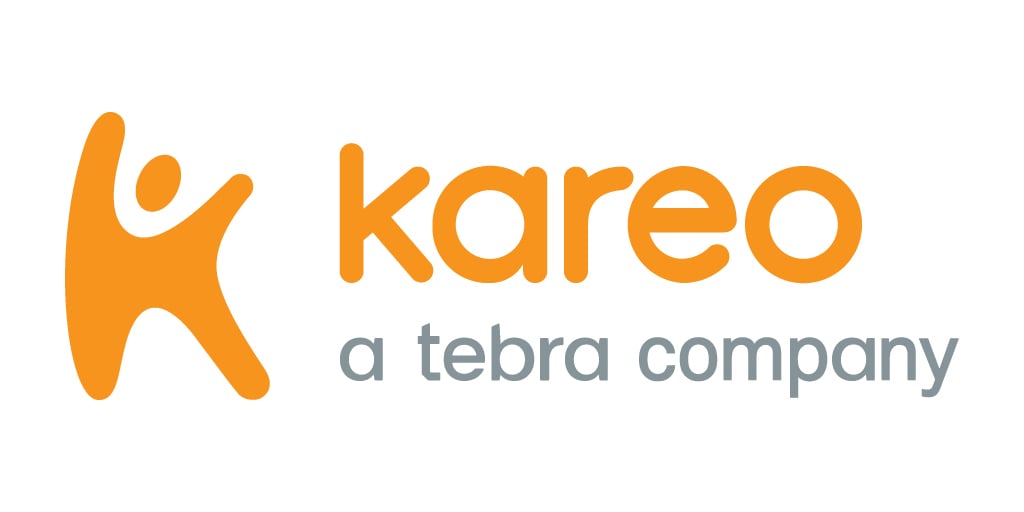
Specializing in providing solutions for independent medical practices, Kareo‘s patient management software caters to the unique needs of smaller healthcare providers. With a user-friendly interface and emphasis on affordability, Kareo offers tools for appointment scheduling, billing, and telemedicine, supporting the efficient operation of independent medical practices.
Pros:
- Kareo excels in affordability and user-friendliness, making it accessible for smaller medical practices.
- The software covers essential features such as appointment scheduling, billing, and telemedicine.
Cons:
- While suitable for independent practices, larger organizations with complex needs may find the software’s features limited.
Key features:
- Affordability: An affordable solution catering to the budget constraints of smaller independent medical practices.
- User-friendly interface: Intuitive design, minimizing the learning curve for users and facilitating efficient daily operations.
- Appointment scheduling: Efficient tools for scheduling and managing patient appointments, reducing administrative burdens.
- Telemedicine integration: Supports the growing trend of telemedicine, enabling remote consultations for patient convenience.
Best for: Kareo is an optimal choice for independent medical practices seeking an affordable and user-friendly patient management solution.
Industry: Tailored for smaller independent medical practices.
Practice Fusion
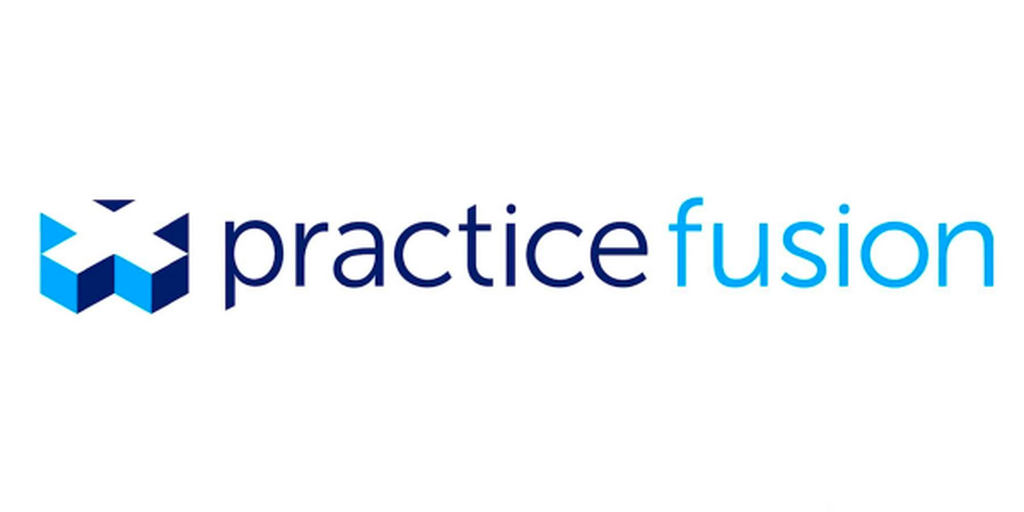
As a cloud-based electronic health record (EHR) solution, Practice Fusion offers a streamlined approach to patient management, particularly designed for smaller healthcare practices. The software focuses on providing essential tools for health record management, e-prescribing, and patient engagement, making it a practical choice for primary care providers.
Pros:
- Practice Fusion’s cloud-based model ensures accessibility and scalability.
- The software excels in health record management, e-prescribing, and patient engagement features.
Cons:
- Practices with complex needs or those requiring advanced features may need to assess compatibility.
Key features:
- Cloud-based accessibility: Ensures flexibility and accessibility for healthcare providers, supporting modern and remote healthcare practices.
- Health record management: Comprehensive tools for maintaining patient health records, ensuring accurate and accessible information.
- E-prescribing: Enables secure electronic prescription workflows, enhancing medication management.
- Patient engagement features: Offers features for patient communication, appointment reminders, and online access to health records.
Best for: Practice Fusion is ideal for smaller healthcare practices seeking a cloud-based EHR solution with a focus on health record management, e-prescribing, and patient engagement.
Industry: Well-suited for smaller healthcare practices, including primary care providers and specialty clinics.
AdvancedMD
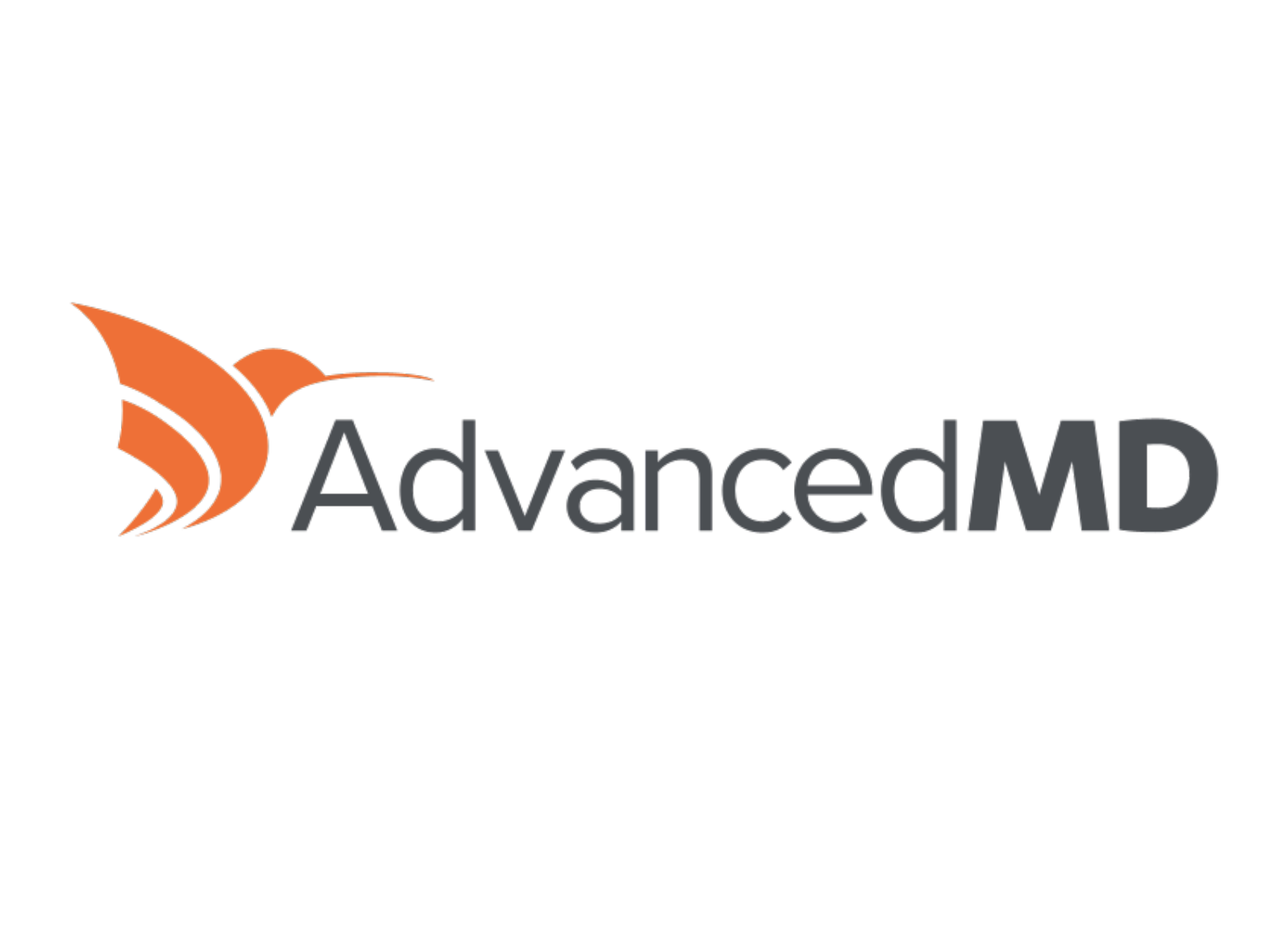
Recognized for its cloud-based practice management and EHR solutions, AdvancedMD‘s patient management software caters to a range of medical specialties. Offering a unified platform, the software seamlessly integrates scheduling, billing, and health record management, providing healthcare providers with the tools needed for efficient and patient-centric care.
Pros:
- AdvancedMD excels in providing a unified platform with robust scheduling, billing, and health record management capabilities.
- The cloud-based model ensures accessibility and scalability.
Cons:
- Customization options may require careful consideration, and organizations transitioning from traditional systems may need time for adaptation.
Key features:
- Unified platform: Integrates scheduling, billing, and health record management for a seamless and comprehensive patient management experience.
- Cloud-based accessibility: Ensures flexibility and accessibility for healthcare providers, supporting modern and remote healthcare practices.
- Specialty-specific solutions: Tailors solutions for various medical specialties, meeting the unique needs of different practices.
- Patient-centric features: Fosters patient engagement with features such as appointment reminders and secure communication.
Best for: AdvancedMD is ideal for healthcare organizations seeking a cloud-based solution with a unified platform for scheduling, billing, and health record management.
Industry: Suitable for a variety of medical specialties and practices of different sizes.
Meditech Expanse
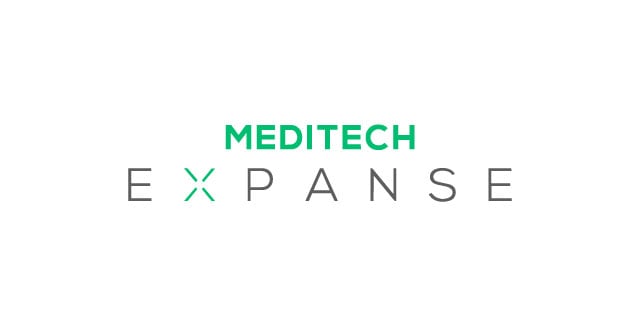
Positioned as a comprehensive, integrated EHR solution, Meditech Expanse‘s patient management software caters to the diverse needs of healthcare organizations. With a focus on interoperability and data-driven decision-making, Meditech Expanse supports healthcare providers in delivering high-quality and coordinated patient care.
Pros:
- Meditech Expanse offers a comprehensive suite of EHR features with a strong focus on interoperability.
- The software supports data-driven decision-making for improved patient outcomes.
Cons:
- Implementation may require careful planning, and organizations transitioning from traditional systems may need time for adaptation.
Key features:
- Integrated EHR solution: Provides a comprehensive suite of EHR features, including health record management, clinical decision support, and e-prescribing.
- Interoperability: Ensures seamless data exchange across healthcare systems, promoting collaboration and continuity of care.
- Data-driven decision-making: Empowers healthcare providers with data-driven insights for informed decision-making and improved patient outcomes.
- Patient-centric tools: Fosters patient engagement with features such as patient portals and secure communication.
Best for: Meditech Expanse is suitable for healthcare organizations seeking an integrated EHR solution with a strong emphasis on interoperability and data-driven decision-making.
Industry: Ideal for medium to large healthcare facilities aiming to optimize patient care coordination.
eMDs Solution Series
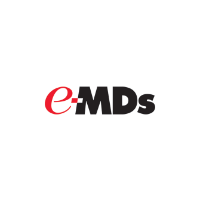
Catering to the diverse needs of medical practices, eMDs Solution Series provides a versatile patient management software solution. This comprehensive platform encompasses features such as scheduling, billing, and health record management, allowing healthcare providers to streamline their operations and focus on delivering quality patient care.
Pros:
- eMDs Solution Series offers a versatile and comprehensive platform, covering scheduling, billing, and health record management.
- The software is adaptable to the specific needs of different medical practices.
Cons:
- Customization options may require careful consideration, and organizations transitioning from traditional systems may need time for adaptation.
Key features:
- Comprehensive platform: Encompasses scheduling, billing, and health record management for an all-in-one solution.
- Adaptability: Adapts to the unique needs of different medical practices, providing a customizable patient management experience.
- User-friendly interface: Features a user-friendly interface, minimizing the learning curve for healthcare providers and staff.
- Interoperability: Ensures seamless data exchange, supporting collaboration across different healthcare systems.
Best for: eMDs Solution Series is suitable for medical practices seeking a versatile and adaptable patient management solution.
Industry: Tailored for a variety of medical specialties and practices of different sizes.
CareCloud
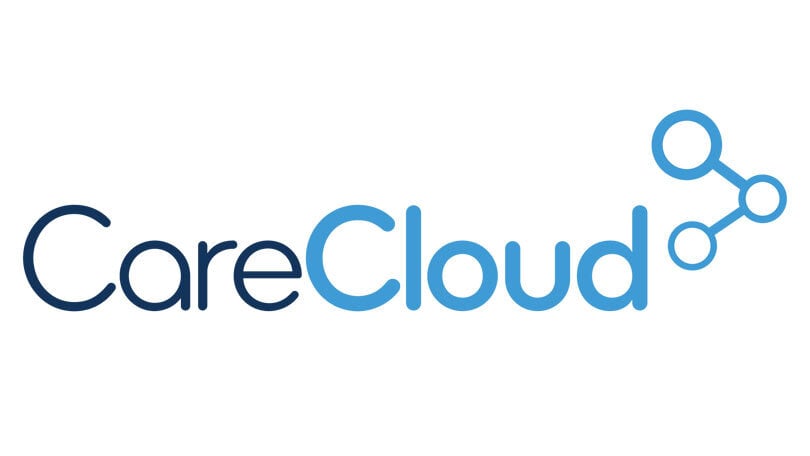
Positioned as a modern, cloud-based healthcare solution, CareCloud‘s patient management software combines advanced technology with user-friendly features. The platform covers a spectrum of functionalities, including patient engagement, billing, and health record management, supporting medical practices in delivering efficient and patient-centered care.
Pros:
- CareCloud excels in offering a modern, cloud-based solution with advanced patient engagement features.
- The platform seamlessly integrates billing and health record management for comprehensive patient care.
Cons:
- Organizations transitioning from traditional systems may need time for adaptation. Customization options may require careful consideration.
Key features:
- Cloud-based technology: Utilizes modern, cloud-based technology for flexibility and accessibility in healthcare operations.
- Patient engagement: Offers advanced patient engagement features, including secure messaging and online appointment scheduling.
- Integrated billing: Seamlessly integrates billing processes, optimizing financial workflows for medical practices.
- Health record management: Provides robust tools for maintaining comprehensive and accessible patient health records.
Best for: CareCloud is ideal for medical practices seeking a modern, cloud-based patient management solution with advanced patient engagement features.
Industry: Suitable for various medical specialties and practices of different sizes.
Drchrono
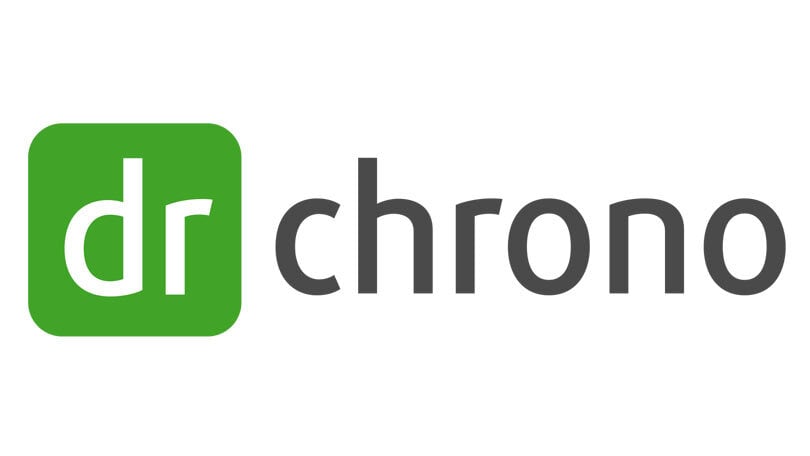
Positioned as a mobile and web-based EHR platform, DrChrono patient management software stands out for its flexibility and accessibility. Catering to the needs of healthcare providers on the go, DrChrono offers features for appointment scheduling, billing, and health record management, enhancing the efficiency of medical practices.
Pros:
- DrChrono’s mobile and web-based platform ensures flexibility and accessibility for healthcare providers.
- The software provides features for efficient appointment scheduling, billing, and health record management.
Cons:
- Customization options may require careful consideration, and organizations transitioning from traditional systems may need time for adaptation.
Key features:
- Mobile and web-based platform: Offers flexibility and accessibility for healthcare providers, supporting modern and on-the-go medical practices.
- Appointment scheduling: Provides efficient tools for scheduling and managing patient appointments, reducing administrative burdens.
- Billing: Streamlines billing processes, ensuring accurate and timely financial transactions for medical practices.
- Health record management: Offers comprehensive tools for maintaining patient health records, supporting efficient and accessible information.
Best for: DrChrono is ideal for healthcare providers who value a mobile and web-based platform, enhancing flexibility and accessibility in patient management.
Industry: Suitable for various medical specialties and practices of different sizes.
Azalea Health

Specializing in offering solutions for rural and community healthcare, Azalea Health‘s patient management software addresses the unique challenges faced by these practices. With a focus on telehealth, revenue cycle management, and interoperability, Azalea Health supports healthcare providers in delivering quality care to underserved populations.
Pros:
- Azalea Health excels in addressing the specific needs of rural and community healthcare practices.
- The software prioritizes telehealth, revenue cycle management, and interoperability.
Cons:
- Organizations transitioning from traditional systems may need time for adaptation.
- Customization options may require careful consideration.
Key features:
- Telehealth: Prioritizes telehealth capabilities, facilitating remote consultations for underserved populations.
- Revenue cycle management: Comprehensive tools for managing financial processes, optimizing revenue streams for rural and community healthcare practices.
- Interoperability: Ensures seamless data exchange, supporting collaboration across different healthcare systems and providers.
- Patient-centric features: Fosters patient engagement with features such as appointment reminders and secure communication.
Best for: Azalea Health is ideal for rural and community healthcare practices seeking a solution that addresses their unique challenges, with a focus on telehealth and revenue cycle management.
Industry: Tailored for rural and community healthcare practices.
CareVoyant

Tailored for healthcare providers offering long-term care and behavioral health services, CareVoyant’s patient management software caters to the specific needs of these specialized practices. With comprehensive features for care planning, billing, and health record management, CareVoyant supports the delivery of quality care in long-term and behavioral health settings.
Pros:
- CareVoyant excels in addressing the unique needs of long-term care and behavioral health practices.
- The software offers comprehensive tools for care planning, billing, and health record management.
Cons:
- Organizations transitioning from traditional systems may need time for adaptation.
- Customization options may require careful consideration.
Key features:
- Specialized care planning: Tailors features for care planning in long-term care and behavioral health settings, ensuring quality and specialized patient care.
- Billing: Streamlines billing processes, ensuring accurate and timely financial transactions for specialized healthcare practices.
- Health record management: Offers robust tools for maintaining patient health records, supporting efficient and accessible information.
- Interoperability: Ensures seamless data exchange, supporting collaboration across different healthcare systems and providers.
Best for: CareVoyant is ideal for healthcare providers specializing in long-term care and behavioral health, seeking a comprehensive patient management solution.
Industry: Tailored for long-term care and behavioral health practices.
ChartLogic

Positioned as a comprehensive EHR solution with integrated practice management features, ChartLogic’s patient management software caters to medical practices seeking an all-in-one solution. The platform combines health record management, billing, and appointment scheduling, streamlining operational workflows for efficient patient care.
Pros:
- ChartLogic excels in providing an all-in-one solution with integrated health record management, billing, and appointment scheduling features.
- The platform is adaptable to the specific needs of different medical practices.
Cons:
- Organizations transitioning from traditional systems may need time for adaptation.
- Customization options may require careful consideration.
Key features:
- Integrated practice management: Combines health record management, billing, and appointment scheduling for a comprehensive patient management experience.
- Adaptability: Adapts to the unique needs of different medical practices, providing a customizable patient management solution.
- User-friendly interface: Features a user-friendly interface, minimizing the learning curve for healthcare providers and staff.
- Interoperability: Ensures seamless data exchange, supporting collaboration across different healthcare systems.
Best for: ChartLogic is suitable for medical practices seeking an integrated EHR solution with comprehensive practice management features.
Industry: Tailored for various medical specialties and practices of different sizes.
WRS Health
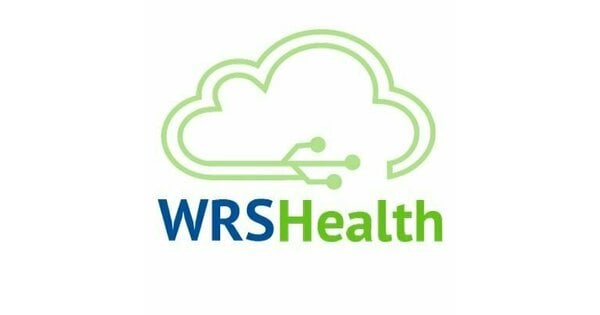
Specializing in offering solutions for practices in various medical specialties, WRS Health’s patient management software provides a comprehensive platform for healthcare providers. With features for appointment scheduling, billing, and health record management, WRS Health supports medical practices in delivering efficient and patient-centered care across different specialties.
Pros:
- WRS Health excels in providing a comprehensive platform adaptable to various medical specialties.
- The software covers features for appointment scheduling, billing, and health record management.
Cons:
- Organizations transitioning from traditional systems may need time for adaptation.
- Customization options may require careful consideration.
Key features:
- Adaptability to specialties: Tailors features to the specific needs of various medical specialties, providing a customizable patient management solution.
- Appointment scheduling: Offers efficient tools for scheduling and managing patient appointments, reducing administrative burdens.
- Billing: Streamlines billing processes, ensuring accurate and timely financial transactions for medical practices.
- Health record management: Provides robust tools for maintaining patient health records, supporting efficient and accessible information.
Best for: WRS Health is suitable for medical practices in various specialties seeking a comprehensive and adaptable patient management solution.
Industry: Tailored for various medical specialties and practices of different sizes.
Nextech
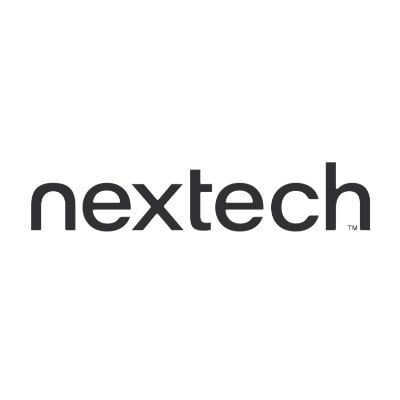
Positioned as a specialty-specific healthcare technology provider, Nextech‘s patient management software caters to medical practices focusing on dermatology, ophthalmology, and plastic surgery, among others. The platform combines EHR, practice management, and marketing tools to support specialized practices in delivering top-quality patient care.
Pros:
- Nextech excels in providing specialty-specific solutions for dermatology, ophthalmology, and plastic surgery practices.
- The software combines EHR, practice management, and marketing tools.
Cons:
- Organizations transitioning from traditional systems may need time for adaptation.
- Customization options may require careful consideration.
Key features:
- Specialty-specific solutions: Tailors features for dermatology, ophthalmology, and plastic surgery practices, providing specialized patient management solutions.
- Integrated EHR: Combines EHR features with practice management tools, ensuring a seamless patient management experience.
- Marketing tools: Offers tools for marketing and patient engagement, enhancing the visibility and outreach of specialized practices.
- Adaptability: Adapts to the unique needs of different medical specialties, providing a customizable patient management solution.
Best for: Nextech is ideal for specialized medical practices, particularly in dermatology, ophthalmology, and plastic surgery, seeking a comprehensive patient management solution.
Industry: Tailored for specialty practices in dermatology, ophthalmology, plastic surgery, and related fields.
PrognoCIS by Bizmatics
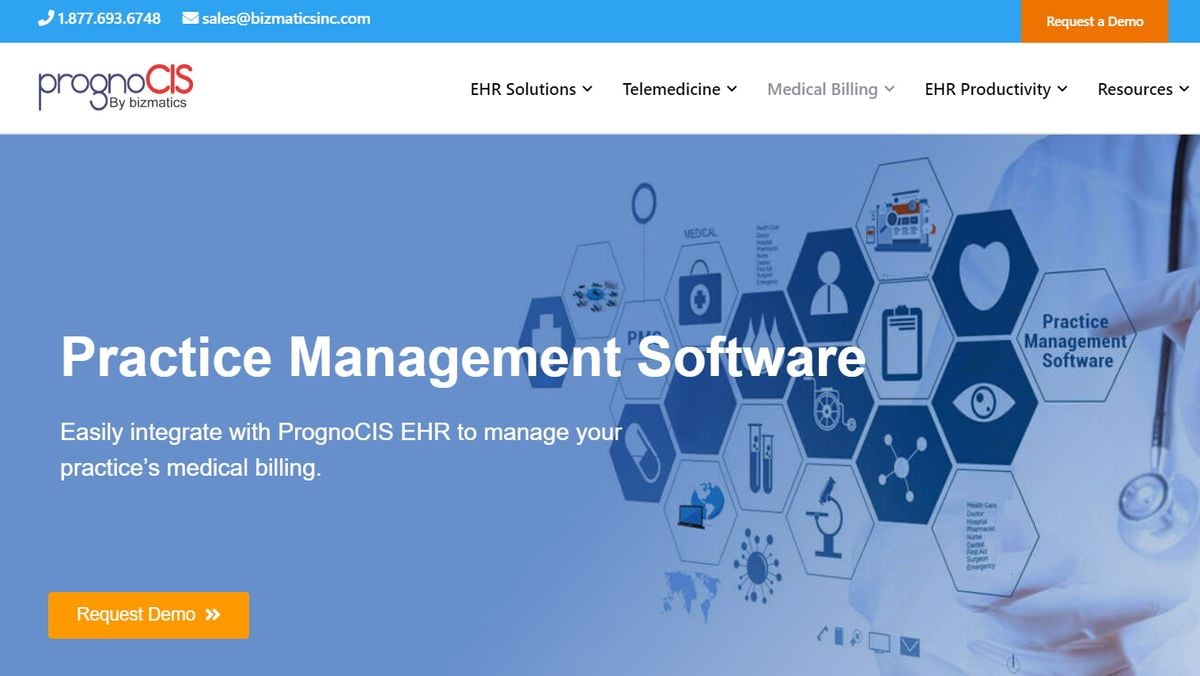
Positioned as an all-in-one EHR and practice management solution, PrognoCIS by Bizmatics caters to various medical specialties. The platform integrates features for health record management, billing, and patient engagement, offering a comprehensive solution for medical practices seeking efficiency and patient-centric care.
Pros:
- PrognoCIS excels in providing an all-in-one solution with integrated health record management, billing, and patient engagement features.
- The platform is adaptable to the specific needs of different medical specialties.
Cons:
- Organizations transitioning from traditional systems may need time for adaptation.
- Customization options may require careful consideration.
Key features:
- Integrated EHR and Practice Management: Combines health record management and practice management for a comprehensive patient management experience.
- Adaptability to specialties: Tailors features to the specific needs of various medical specialties, providing a customizable patient management solution.
- Patient engagement features: Offers tools for patient communication, appointment reminders, and online access to health records.
- Interoperability: Ensures seamless data exchange, supporting collaboration across different healthcare systems.
Best for: PrognoCIS by Bizmatics is suitable for medical practices in various specialties seeking an integrated EHR and practice management solution.
Industry: Tailored for various medical specialties and practices of different sizes.
Meditab’s Intelligent Medical Software (IMS)
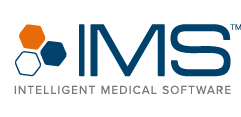
Known for its versatility, Meditab’s IMS offers a comprehensive patient management software solution. Tailored for medical practices of varying sizes and specialties, IMS integrates features for health record management, billing, and patient engagement, supporting efficient and patient-centered care.
Pros:
- IMS excels in providing a versatile solution adaptable to various medical specialties.
- The software integrates health record management, billing, and patient engagement features.
Cons:
- Organizations transitioning from traditional systems may need time for adaptation.
- Customization options may require careful consideration.
Key features:
- Versatile solution: Adapts to the unique needs of different medical specialties, providing a customizable patient management solution.
- Integrated health record management: Combines features for maintaining patient health records with practice management tools for a seamless experience.
- Patient engagement features: Offers tools for patient communication, appointment reminders, and online access to health records.
- Interoperability: Ensures seamless data exchange, supporting collaboration across different healthcare systems.
Best for: Meditab’s IMS is suitable for medical practices of varying sizes and specialties seeking a versatile patient management solution.
Industry: Tailored for various medical specialties and practices of different sizes.
eClinicalWorks V11
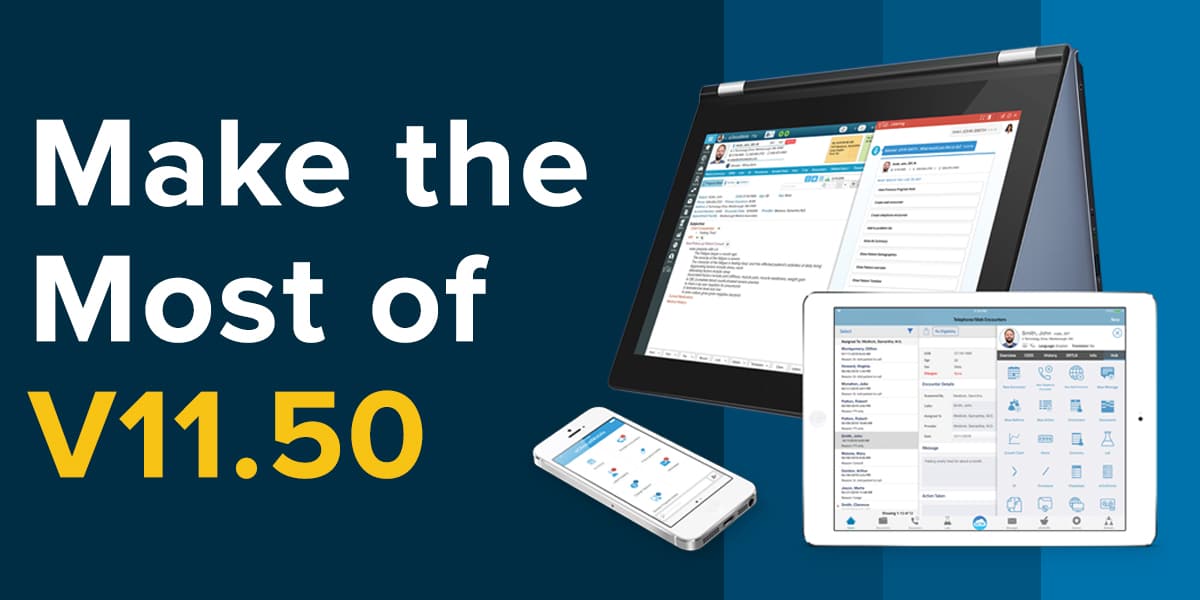
Building on its reputation for user-friendly solutions, eClinicalWorks V11 is an upgraded version that offers advanced features for patient management. Suitable for practices of all sizes, this platform combines EHR, practice management, and telehealth capabilities, providing a comprehensive solution to streamline workflows and enhance patient care.
Pros:
- eClinicalWorks V11 excels in user-friendly design and integrates robust features, including EHR, practice management, and telehealth.
- The platform is adaptable to practices of varying sizes.
Cons:
- Organizations transitioning from traditional systems may need time for adaptation.
- Customization options may require careful consideration.
Key features:
- User-friendly design: Maintains a user-friendly interface, minimizing the learning curve for healthcare providers and staff.
- Integrated EHR and Practice Management: Combines health record management and practice management for a comprehensive patient management experience.
- Telehealth capabilities: Offers integrated telehealth features, supporting remote consultations for patient convenience.
- Adaptability: Tailors features to the specific needs of various medical specialties, providing a customizable patient management solution.
Best for: eClinicalWorks V11 is suitable for practices of all sizes seeking an upgraded solution with advanced features for EHR, practice management, and telehealth.
Industry: Tailored for various medical specialties and practices of different sizes.
Cerner PowerChart
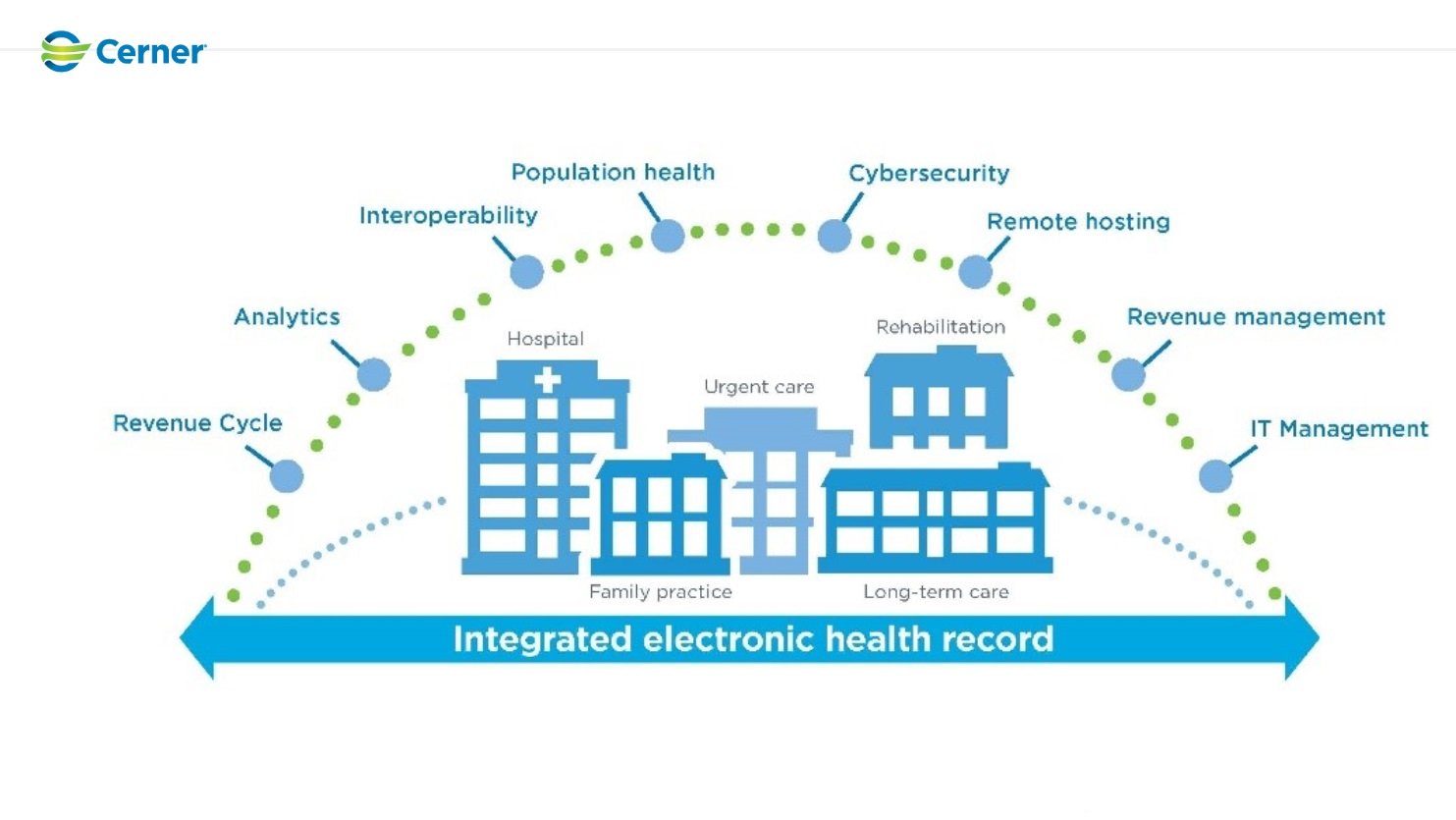
Recognized for its scalability and comprehensive functionalities, Cerner PowerChart is a patient management software solution suitable for medium to large healthcare organizations. The platform integrates EHR, revenue cycle management, and population health management, providing a robust foundation for delivering quality patient care and optimizing operational efficiency.
Pros:
- Cerner PowerChart excels in scalability and comprehensive features, including EHR, revenue cycle management, and population health management.
- The platform is suitable for medium to large healthcare organizations.
Cons:
- Organizations transitioning from traditional systems may need time for adaptation.
- Customization options may require careful consideration.
Key features:
- Scalability: Scales to the needs of medium to large healthcare organizations, providing a comprehensive patient management solution.
- Integrated EHR and revenue cycle management: Combines health record management with revenue cycle management for streamlined financial workflows.
- Population health management: Offers tools for population health management, supporting data-driven decision-making for improved patient outcomes.
- Interoperability: Ensures seamless data exchange, supporting collaboration across different healthcare systems.
Best for: Cerner PowerChart is suitable for medium to large healthcare organizations seeking a scalable and comprehensive patient management solution.
Industry: Tailored for various medical specialties within medium to large healthcare organizations.
Allscripts Professional EHR
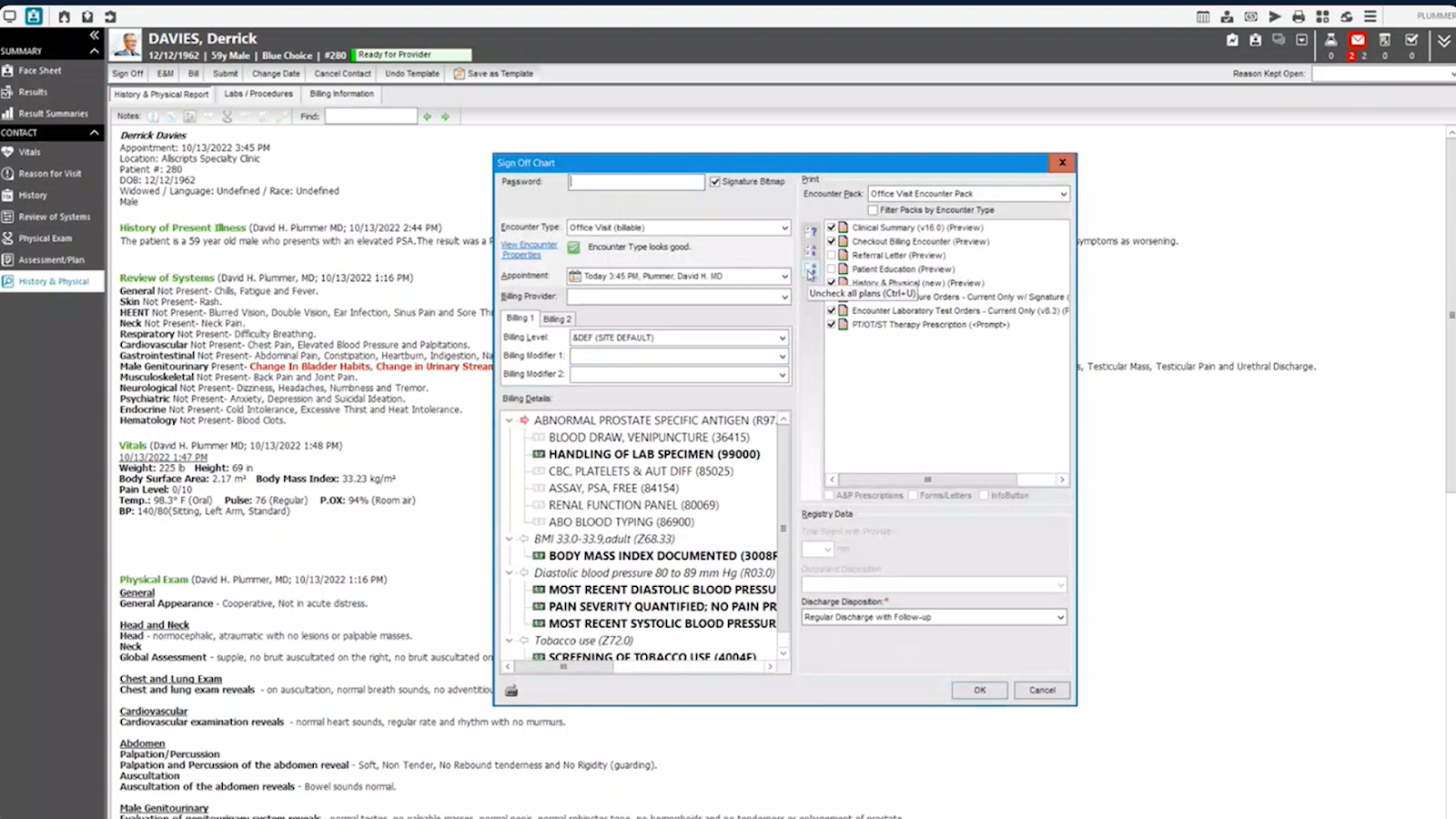
Tailored for ambulatory practices, Allscripts Professional EHR is a patient management software solution that emphasizes usability and efficiency. The platform integrates features for health record management, e-prescribing, and revenue cycle management, providing a practical solution for ambulatory care settings.
Pros:
- Allscripts Professional EHR excels in usability and efficiency, catering to the needs of ambulatory practices.
- The platform integrates health record management, e-prescribing, and revenue cycle management features.
Cons:
- Organizations transitioning from traditional systems may need time for adaptation.
- Customization options may require careful consideration.
Key features:
- Ambulatory care focus: Tailors features to the specific needs of ambulatory practices, providing a practical patient management solution.
- Integrated health record management: Combines features for maintaining patient health records with e-prescribing and revenue cycle management tools.
- Usability: Maintains a user-friendly interface, minimizing the learning curve for healthcare providers and staff.
- Interoperability: Ensures seamless data exchange, supporting collaboration across different healthcare systems.
Best for: Allscripts Professional EHR is suitable for ambulatory practices seeking a patient management solution with a focus on usability and efficiency.
Industry: Tailored for ambulatory care practices of different sizes.
Medisoft
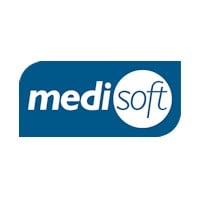
Recognized for its affordability and simplicity, Medisoft is a patient management software solution designed for smaller medical practices. Focusing on billing, scheduling, and practice management, Medisoft offers essential tools to streamline daily operations and ensure accurate financial transactions.
Pros:
- Medisoft excels in affordability and simplicity, making it accessible for smaller medical practices.
- The platform focuses on billing, scheduling, and practice management features.
Cons:
- While suitable for smaller practices, organizations with complex needs may find the software’s features limited.
- Customization options may require careful consideration.
Key features:
- Affordability: An affordable solution catering to the budget constraints of smaller medical practices.
- Simplicity: user-friendly interface, minimizing the learning curve for users and facilitating efficient daily operations.
- Billing and scheduling: Streamlines billing processes and provides efficient tools for scheduling and managing patient appointments.
- Practice management: Offers essential practice management features for smaller medical practices.
Best for: Medisoft is an optimal choice for smaller medical practices seeking an affordable and straightforward patient management solution.
Industry: Tailored for smaller independent medical practices.
Greenway Health Prime Suite
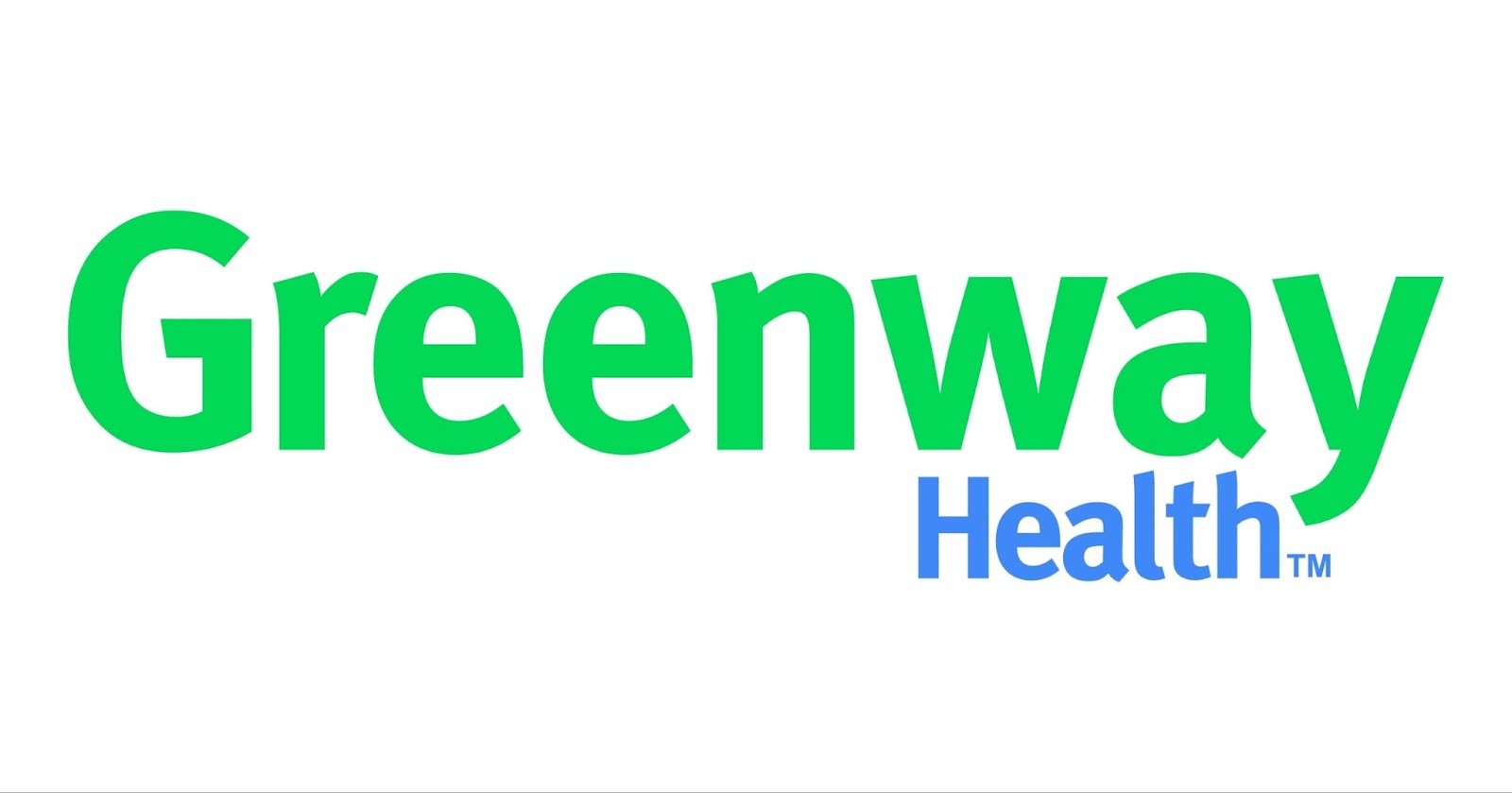
Tailored for ambulatory care practices, Greenway Health Prime Suite is a patient management software solution that combines EHR, practice management, and interoperability features. With a focus on user-friendly design and efficient workflows, Prime Suite supports the delivery of quality patient care in ambulatory settings.
Pros:
- Greenway Health Prime Suite excels in user-friendly design and efficient workflows, making it suitable for ambulatory care practices.
- The platform integrates EHR, practice management, and interoperability features.
Cons:
- Organizations transitioning from traditional systems may need time for adaptation. Customization options may require careful consideration.
Key features:
- Ambulatory care focus: Tailors features to the specific needs of ambulatory care practices, providing a user-friendly patient management solution.
- Integrated EHR and practice management: Combines health record management with practice management for a comprehensive patient management experience.
- Interoperability: Ensures seamless data exchange, supporting collaboration across different healthcare systems.
- Efficient workflows: Streamlines workflows to enhance operational efficiency in ambulatory care settings.
Best for: Greenway Health Prime Suite is suitable for ambulatory care practices seeking a user-friendly and efficient patient management solution with integrated EHR and practice management features.
Industry: Tailored for ambulatory care practices of different sizes.
GE Healthcare Centricity Practice Solution
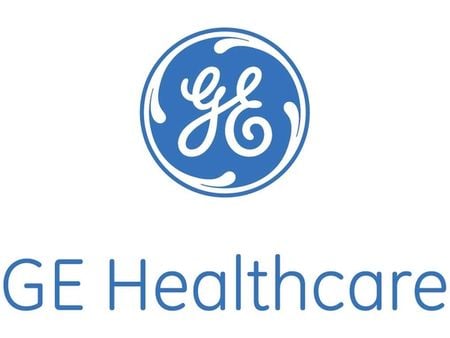
Positioned as a comprehensive patient management software solution for ambulatory care, GE Healthcare’s Centricity Practice Solution integrates EHR, practice management, and patient engagement features. With a focus on efficiency and interoperability, Centricity Practice Solution supports the diverse needs of ambulatory care practices.
Pros:
- Centricity Practice Solution excels in efficiency and interoperability, making it suitable for ambulatory care practices.
- The platform integrates EHR, practice management, and patient engagement features.
Cons:
- Organizations transitioning from traditional systems may need time for adaptation.
- Customization options may require careful consideration.
Key features:
- Ambulatory care focus: Tailors features to the specific needs of ambulatory care practices, providing a comprehensive patient management solution.
- Integrated EHR and practice management: Combines health record management with practice management for a seamless patient management experience.
- Patient engagement features: Offers tools for patient communication, appointment reminders, and online access to health records.
- Interoperability: Ensures seamless data exchange, supporting collaboration across different healthcare systems.
Best for: GE Healthcare Centricity Practice Solution is suitable for ambulatory care practices seeking a comprehensive patient management solution with a focus on efficiency and interoperability.
Industry: Tailored for ambulatory care practices of different sizes.
What software system do most hospitals use?
When it comes to managing patient information and ensuring efficient healthcare delivery, hospitals rely on various software solutions.
These software systems are designed to streamline processes, improve data accuracy, and enhance overall patient care.
Let’s explore some of the key hospital management tools:
EHR
One of the most commonly used software systems in hospitals is the Electronic Health Record (EHR) system.
This comprehensive software allows for the digital storage and management of patient data, including medical history, medications, test results, and treatment plans.
It enables healthcare providers to access real-time information, track patient progress, and make informed decisions.
CPOE
Another key software system used in hospitals is the Computerized Physician Order Entry (CPOE) system.
This system enables healthcare professionals to electronically prescribe medications, order tests and procedures, and generate treatment plans.
By eliminating manual processes, CPOE reduces errors, enhances medication safety, and improves patient outcomes.
PACS
Hospitals often utilize Picture Archiving and Communication Systems (PACS) software. PACS enables the storage, retrieval, and distribution of medical imaging tests such as X-rays, CT scans, and MRIs.
This system provides healthcare providers with instant access to powerful insights, allowing for faster diagnosis and treatment decisions.
What is PM software?
PM software, or Practice Management software, is a crucial tool for healthcare providers to effectively manage their practice’s administrative tasks.
PM software primarily revolves around medical billing, ensuring that providers can accurately bill insurance companies and receive timely payments.
This software streamlines the billing process by automating tasks such as claim submission, payment tracking, and insurance verification.
By utilizing PM software, healthcare providers can optimize their revenue cycle management.
What is patient experience software?
Patient experience software refers to a category of software tools and applications designed to enhance and manage the overall experience of patients within the healthcare system.
These software solutions are aimed at improving communication, streamlining processes, and ultimately ensuring a positive and efficient experience for patients.
Key functionalities of patient experience software include:
- Appointment scheduling
- Communication tools
- Feedback and surveys
- Patient portals
- Billing and payment
- Virtual care integration
- Wayfinding and navigation
- Integration with Electronic Health Records (EHR)
By focusing on these aspects, patient experience software aims to enhance patient satisfaction, engagement, and outcomes while also helping healthcare providers optimize their processes and workflows. The ultimate goal is to create a more patient-centric and efficient healthcare environment.
How to choose the right patient management software for healthcare professionals?
Choosing the right patient management software is a critical decision for healthcare professionals, impacting the efficiency of daily operations and the quality of patient care. Here are four essential considerations to guide your selection process:
Comprehensive needs assessment
Conduct a thorough assessment of your healthcare facility’s unique requirements.
Identify key areas such as:
- Appointment scheduling
- Billing
- Electronic health record (EHR) integration
- Communication tools
- Any specific features crucial to your practice
Consider the size and scope of your facility, the volume of patients you handle, and the complexity of your workflows.
This comprehensive needs assessment forms the basis for evaluating software options that align closely with the specific operational demands of your healthcare practice.
Usability and training
Prioritize user-friendly patient management software with an intuitive interface.
A system that is easy to navigate reduces the learning curve for your staff and contributes to seamless integration into your daily workflows.
Assess the availability of training resources provided by the software vendor, including documentation, tutorials, and support.
A well-supported implementation process ensures that your team can quickly adapt to and maximize the benefits of the new software, minimizing disruptions to patient care and administrative processes.
Interoperability and integration
Choose software that seamlessly integrates with existing systems, especially electronic health records (EHR).
Interoperability ensures the smooth flow of patient information between different systems, promoting a unified and comprehensive approach to healthcare.
Verify the software’s compatibility with other essential systems your practice uses, such as laboratory systems or telehealth platforms.
An integrated healthcare ecosystem enhances collaboration, streamlines processes, and improves overall operational efficiency.
Security and compliance
Prioritize patient management software that prioritizes robust data security measures.
Verify that the software adheres to relevant healthcare regulations and standards, such as HIPAA, in the United States.
Look for features such as encryption, access controls, and secure data transmission to safeguard patient information.
Ensuring compliance with industry regulations is crucial to maintaining patient trust, avoiding legal issues, and protecting sensitive healthcare data from unauthorized access or breaches.







 Workflows
Workflows Projects
Projects Data Sets
Data Sets Forms
Forms Pages
Pages Automations
Automations Analytics
Analytics Apps
Apps Integrations
Integrations
 Property management
Property management
 Human resources
Human resources
 Customer management
Customer management
 Information technology
Information technology


